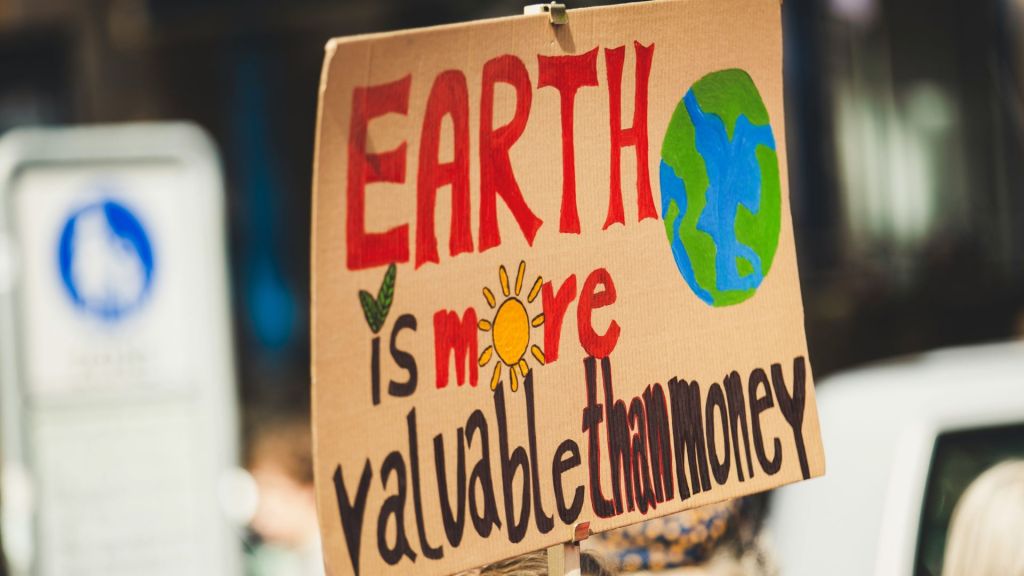Gabrielle Howard
AFRO Intern
ghoward@afro.com
In recent years, cities across the globe have experienced alarming record-breaking temperatures and weather catastrophes, highlighting the alarming trend of rising global temperatures associated with climate change.

Credit: Unsplash / Markus Spiske
in D.C., reported high temperatures at sites like the Dulles International Airport which reached 100 degrees and broke its previous highest temperature- 99 degrees in 1988. Also, Baltimore’s BWI Marshall reached 101 degrees, breaking their previous record of 100 degrees.
These record-high temperatures are impacting not only the environment but also Black and brown communities. Global warming is causing changes that certain areas may not have funding to help combat these issues.
CEO and Chief Scientist of Science and Perspective, Dr. Ancilleno Davis explained how global warming has been causing dangerous rises in sea levels which affects Black communities, as many Black communities live at sea level. With the threat of sea level rise due to climate change, DC may experience higher water levels along with other Black communities around the world.
“When a storm comes you’re going to get hit with that, like Katrina and South Florida these areas that are living based on environmental resources are very climate vulnerable,” explained Davis.
Davis also emphasized joining with the community to cause change. He explained how the average person can take strides to fight against climate change by prioritizing social sustainability, which is creating and maintaining healthy lifestyles for present and future communities.
“Day to day a lot of us are just wasteful. We don’t live within our means… If you stopped making five trips to the food store every week and just planned and said, I eat this amount each week, I only need to go to the food store once a week or once every two weeks, that’s what sustainability is about.”
Access to environmentally sustainable resources though, is costly. These resources are an aid to the crisis at hand but many areas are forced to continue producing environmental waste due to lack of funding or information.
Seth Laney, a policy research assistant at the North Carolina Clean Energy Technology Center explained how some Black and Brown communities may not be able to adapt to climate change and the frequent changes like sudden heavy rain, frequent storms, droughts and dangerous heat waves.
“It affects Black and Brown communities especially communities that are lower income because they might not be able to adjust to the changes that come with climate change” expressed Laney. “So these communities may be stuck using these unsustainable sources.”
Sources like coal and oil are unsustainable and very harmful to the environment, which in turn creates climate change.
Climate change affects things like the weather, by creating heavy rainfall, storms, droughts and heat waves which cause an increase in severe injuries.
According to the National Library of Medicine, “A national survey found that eighty-six percent of African American doctors believe that climate change is an important issue to address with their patients…The most common health effects reported were injuries from severe storms, floods and wildfires.”
Climate change not only affects the human body but the way we get food as well.
The Environmental Government Agency explained how the climate and agriculture directly correlate, and how the sudden changes of weather patterns impact the land food is grown on and the way crops grow.
“Agriculture is very sensitive to weather and climate. It also relies heavily on land, water and other natural resources that climate affects. While climate changes (such as in temperature, precipitation and frost timing) could lengthen the growing season or allow different crops to be grown in some regions.”
The Columbia Climate School also explained how climate change is linked to food insecurity because it causes dryer land which can be unprofitable for farmers and their crops.
“In other cases, climate change could make it impossible for farmers to raise their traditional crops; ideal growing conditions may shift to higher latitudes, where the terrain or soil may not be as fertile, resulting in less land available for productive agriculture.”
Being well educated on climate change and what actions can be put forth to cause the reform of global warming is crucial in this day and age. To learn more about policies for renewable energy sources in specific states visit https://www.dsireusa.org/ .
The post Beyond the tipping point: Addressing the urgency of climate change appeared first on AFRO American Newspapers.










